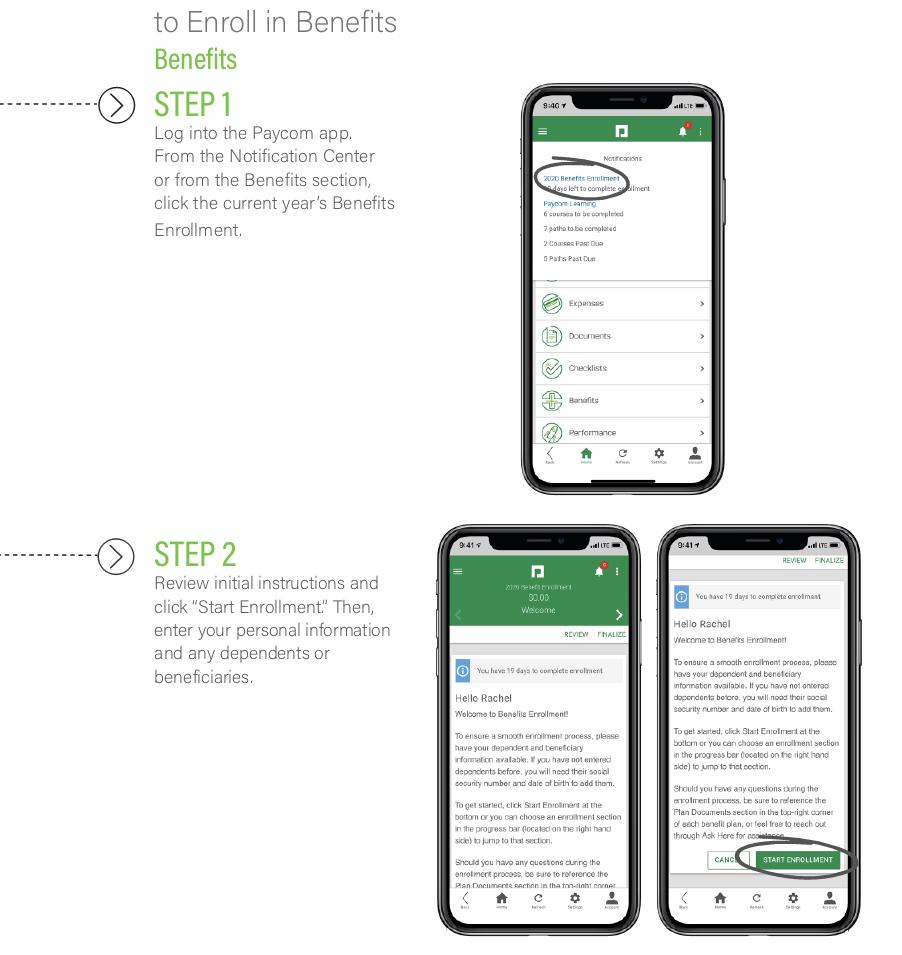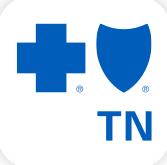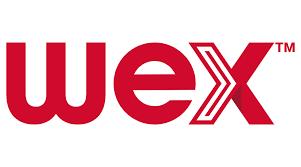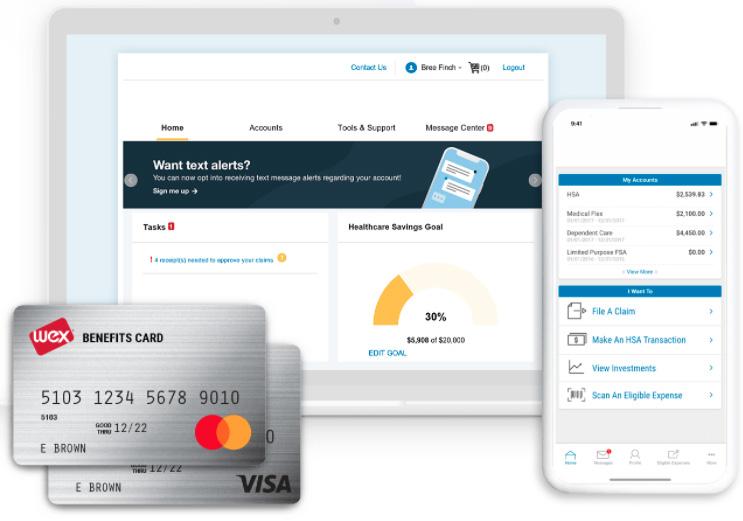Employee Benefits Guide 2025







This guide is designed to provide a general overview of your benefits at HealthPartnerOne. It is not a contract or an official interpretation of the benefit plans. For more detailed information, please refer to your summary plan descriptions or the legal plan documents located in your Paycom account. Should any questions or conflicts arise, the plan documents will be the final authority in determining your benefits. HealthPartnerOne reserves the right to modify or discontinue the plans at any time. This document was prepared exclusively for full-time employees of HealthPartnerOne. Unauthorized reproduction is strictly prohibited.
Full-time employees who work 30 hours or more per week. You are also able to cover eligible dependents listed below:
• Current Spouse
• Dependent Children under the age of 26, including:
• Natural Children and Step-Children
• Legally adopted child (including children place for the purpose of adoption)
• Children for whom you or your spouse is the legal guardian or for whom a Qualified Medical Child Support Order has been issued
• Certain Children over the age of 26 who are determined to be medically incapacitated
Changes to your enrollment may be made annually during open enrollment each year. Mid-year changes may be made for the following qualifying events such as:
• Marriage or divorce
• Birth or adoption
• Death
• Change in job status for yourself or your dependent
• Change in Medicaid/CHIP eligibility
Note: Dependent Child coverage ends on their 26th birthday.
3
This document is to serve as a Summary of Material Modifications to the Summary Plan Description (SPD) for the HealthPartnerOne, LLC Health and Welfare Plan. It is meant to supplement and/or replace certain information in the SPD, so retain it for future reference along with your SPD. Please share these materials with your covered family members.
Section 125 Premium Conversion Plan lets you exclude your Medical, Dental, Vision, HSA and FSA premiums from your taxable income, meaning your premiums will come out of your income pre-tax. This lowers your taxable income. By default, your premiums will be deducted pre-tax, increasing your take-home pay anywhere from a couple hundred dollars to a thousand or more annually.
You may elect to have your premiums deducted aftertax. Please contact Human Resources regarding this.
Proof of qualified life event verification should be sent to the Administration at tammy.andrews@ healthpartnerone.com or 423-844-1373. HR must be notified within 30 days of a qualifying event (with the exception of Medicaid/CHIP). All changes must be made within 60 days of your qualifying event for Medicaid/CHIP.
If you (and/or your dependents) have Medicare or will become eligible for Medicare in the next 12 months, a Federal law gives you more choices about your prescription drug coverage. Please see Annual Notices section for more details.
To Enroll in Benefits:
Step 1 - Log into the Paycom app. From the Notification Center or from the Benefits section, click the current year’s Benefits Enrollment.
Step 2 - Review initial instructions and click “Start Enrollment.” Then, enter your personal information and any dependents or beneficiaries.
Step 3 - After reading each benefit plan, choose your coverage, then elect either to enroll or decline.
Step 4 - To complete enrollment, click “Finalize,” then “Sign and Submit.”
Step 1 - Navigate to Benefits > Dependents and Beneficiaries
Step 2 - Click the blue plus sign icon.
Step 3 - Then, enter the information for the dependent. When you’re finished entering details click “Save Recipient.” Note: certain fields are required.
Step 4 - To edit an existing dependent, click the threedot icon and click “Edit.”

**Have your dependent/beneficiary information ready, such as Social Security numbers, before beginning the enrollment process.
**As you go through the enrollment process, your selections will display and add up on the benefits summary tracker to the right.

BlueCross BlueShield of TN | (800) 565-9140 | www.bcbst.com | Group Number: 171797
Your medical benefits at HealthPartnerOne are through BlueCross BlueShield of Tennessee (BCBST). HealthPartnerOne offers a High Deductible Health Plan (HDHP) to address employee’s needs. HDHPs can be paired with Health Savings Accounts (HSAs). Preventive services are covered at 100%.
To receive the maximum benefit from your HDHP, make sure your provider is a member of BCBST’s Network S. Under this plan, you have the flexibility to go to any provider that you choose and you are not required to select a Primary Care Physician (PCP).
Dependent children enrolled in the group health plan are eligible for coverage until the dependent’s 26th birthday.
Employee Only
$51.45
Employee + Spouse $117.47
Employee + Child(ren) $96.40
Employee + Family $166.94
*If your spouse is offered affordable coverage through their employer and chooses to be enrolled on the HealthPartnerOne Plan, you will be charged a $50 surcharge.
However, anytime you select an in-network physician or facility, you will benefit from negotiated pricing and higher benefit levels. In-network providers will also file your claims for you. To find an in-network provider near you, go to www.bcbst.com and click on “Find Care” to begin your search. Please be sure to consult either the online directory or BCBST customer service to confirm that your provider participates in the network.
HDHPs are federally regulated and require covered expenses to be subject to a deductible and coinsurance, including prescription drugs. The plan design requires that you meet an up-front deductible before most benefits are paid, except for certain preventive services and preventive drugs.
Once you meet your deductible, you will pay coinsurance until your out-of-pocket maximum is reached. When you use HealthPartnerOne facilities your coinsurance is less. Once you reach your out-of-pocket maximum, the plan pays 100%. This limits your overall costs if you were to have a catastrophic medical event.
Preventive care helps you stay healthy and helps reduce your overall medical expenses!
Services must be coded as preventive care by an in-network physician to be covered in full by HealthPartnerOne medical plans. Your PCP may request certain labs, procedures, or follow-up based on your health history which may or may not be paid at 100%.
Preventive services include the following, based on age, sex, and family history:
• Annual physical
• Well woman exam
• Immunizations, as recommended by the CDC
• Routine mammography, starting at age 40
• Screenings for vision and hearing, performed by physician during routine exam
• Screenings for prostate cancer, starting at age 50
• Screening for colorectal cancer
• Screenings for cervical cancer
• Certain lab tests designated as preventive, such as basic metabolic panel and lipid panel
/
/ Family
Services Received at a Practitioner’s Office
Preventive Care
Office Visit
Routine Diagnostic Services
Non-Routine Diagnostic Services*
Services Received at a Facility
Outpatient Surgery*
Outpatient Routine and Non-Routine Diagnostic Services
Flexible Sigmoidoscopy and Screening Colonoscopy
Emergency Care Services
Outpatient Therapeutic Services
Physical, Speech, Occupational, Chiropractic, Cardiac, Pulmonary
Mental Health/Substance Abuse Services*
Outpatient (prior authorization required after the ninth visit)
Inpatient Facility
Skilled Nursing and Rehab Facility* (Limited to 100 days combined per calendar year)
Benefits for Other Covered Services
or

The BlueCross mobile app makes it easier than ever to get the plan information you need, when you need it. Log in using the username and password from your online account.
• Faster Login: Touch and Face ID login means no password memorizing
• Live Online Chat: Get help from a live agent on your care team
• All Your Details in One Place: All your plan coverage and costs are front and center
• Digital ID Card: See and share your Member ID card with a single tap
• Find Care and Costs: Find providers near you and how much you might pay for their care
• Easy Telehealth Access: Easy-to-find link to make virtual doctor appointments

Traveling abroad? No problem! As a BCBS member, you can take your healthcare benefits with you when you are abroad. Through the BCBS Global Core program, you have access to doctors and hospitals around the world. To take advantage of the program:
• Call the Service Center 24/7 at 1-800-810-2583 or collect at 1-804-673-1177.
• Always carry your BCBST ID card when you travel or live outside the U.S.
• Follow the same process as in the U.S., with these exceptions:
• If you need inpatient care, call the Service Center to arrange direct billing. In most cases, you should not need to pay up front for inpatient care except for the usual out-of-pocket expenses. The hospital should submit your claim.
• For outpatient and doctor care or inpatient care not arranged through the Service Center, you may need to pay up front. Complete a BCBS Global Core International claim form and send it with the bill(s) to the Service Center.

WEX, Inc. | (866) 451-3399 | www.wexinc.com | Email: customerservice@wexhealth.com Group Number: TBD
Health Savings Accounts (HSA’s) are established to pay for future qualified medical, pharmacy, dental, and vision expenses that are incurred by you as an eligible individual and any eligible dependents enrolled in a qualified High Deductible Health Plan (HDHP). An HSA allows eligible individuals to put money aside, pre-tax, and then use these savings to pay for subsequent future qualified medical expenses. Over the years, your HSA balance can grow and can even be used to help you meet medical expenses when you retire.
Any account over $1,000 has investment options (like a 401(k)). Any accounts with $5,000 or more in their HSA account are eligible to participate in a HSBA (Health Savings Brokerage Account). The HSBA is an individual brokerage account offered by Charles Schwab that is integrated into the WEX consumer online account. This account is for knowledgeable investors who understand the risks associated with many of the investment choices available through the HSBA and who are committed to staying invested for the long-term. The HSBA is designed for consumers who seek more flexibility, increased diversification and a greater role in managing their HSA.
Employee: $4,300
Employee + Spouse: $8,550
Employee + Child: $8,550
Family: $8,550
Catch-Up Contribution: $1,000, age 55 or older
HSA’s allow employees to make tax-free payroll contributions to the HSA to pay for certain out-of-pocket medical expenses. Your contributions to the HSA will be payroll deducted and the funds deposited into a selected financial institution custodial account. When a qualified expense is incurred, use your HSA Debit Card to pay for the expense, or file for reimbursement if you do not have the card at the time of payment. Unused HSA funds rollover to the next year
Coinsurance – A percentage of a health care cost – such as 20% that the covered employee pays after meeting the deductible.
Co-payment – The fixed dollar amount – such as $35 for a prescription – that the covered employee pays for preventative prescriptions.
Deductible – A fixed dollar amount that the covered employee must pay out of pocket each calendar year before the plan will begin reimbursing for non-preventative health expenses. Plans usually require separate limits per person and per family.
Formulary – A list of prescription drugs covered by the health plan, often structured in tiers that subsidize lowcost generics at a higher percentage than more expensive brand-name or specialty drugs. This list can be found by going to www.epiphanyrx.com, Resources, EpiphanyRx Formulary.
Health Savings Account (HSA) – HSA’s may be opened by employees who enroll in a high-deductible health plan. Employees can put money in an HSA up to an annual limit set by the government (for 2025, the limit is $4,300 for self-only coverage and $8,550 for family coverage), using pre-tax dollars. Employers may also contribute funds to these accounts within the prescribed limit. HSA funds may be used to pay for medical expenses whether or not the deductible has been met, and no tax is owed on funds withdrawn from an HSA to pay for eligible expenses. HSAs are individually owned and the account remains with an employee after employment ends.
In-Network – Doctors, clinics, hospitals and other providers with whom the health plan has an agreement to care for its members. Health plans cover a greater share of the cost for in-network health providers than for providers who are out-of-network.
Out-of-Network – A health plan will cover treatment for doctors, clinics, hospitals and other providers who are out-of-network, but covered employees will pay more out-of-pocket to use out-of-network providers than for innetwork providers.
Out-of-Pocket Limit – The most an employee could pay during a coverage period (usually one year) for his or her share of the costs of covered services, including co-payments and co-insurance.
Premium – The amount that must be paid for a health insurance plan by covered employees, by their employer, or shared by both. A covered employee’s share of the annual premium is generally paid periodically, such as biweekly, and deducted from his or her paycheck.
Summary of Benefits and Coverage (SBC) – An outline of a health insurance plan that allows somebody to evaluate costs and coverage and compare against other health plans. This can be found in your Paycom account.


You may see any optometrist or ophthalmologist of your choice, however, you will receive significantly enhanced benefits if you go to an in-network provider.
To find an in-network provider near you, visit www.bcbst.com.
With this plan, you can receive two lenses and one examination per calendar year. If you select contact lenses instead of eyeglasses, you will receive up to a one-year supply of lenses (based on wearing patterns and lens modality) and one exam per year. You can receive one pair of frames every two years. Please see the Plan Summary for more information.
As an employee at HealthPartnerOne, you have a PPO dental plan option through Delta Dental.
This plan work like a Preferred Provider Organization (PPO) plan in that you can visit any dentist that you choose, however, if your provider is not in network, he or she may charge more than the usual and customary rate, and you may be responsible for the additional charges.
To find an in-network dentist, go to www.deltadentaltn.com and click on the “Find a Dentist” link to begin your search.
(Once every 12 months)
$10 copay Frames (Once every 24 months)
Lenses (Once every 12 months)
$0 Copay; $135 Allowance, 20% off balance over allowance
$20 Copay and up depending on lens type
Lens Enhancements At additional copay
Contact Lenses
(In lieu of eyeglasses; Once every 12 months)
Fit and Follow-up
Conventional
Standard: $40 Copay
Premium: 10% off retail
$0 Copay; $135 Allowance, 15% off balance over allowance
Dependent Child coverage ends on their 26th birthday.
on their 24th birthday.

WEX, Inc. | (866) 451-3399 | www.wexinc.com | Email: customerservice@wexhealth.com Group Number: TBD
HealthPartnerOne offers the option to defer money on a pre-tax basis for use on an approved Flexible Spending Account (FSA) by setting money aside from your gross income for expenses that you anticipate for the plan year. The FSA is administered through WEX, Inc.
• Medical FSA. If you have a Preferred Provider Organization (PPO) Plan, you can enroll in the Medical FSA. The medical FSA allows you to put money aside, pre-tax, to help pay for out-of-pocket medical, dental or vision expenses. You can contribute up to $3,300 per year, and it is available on day one, regardless of whether you’ve put the money in the account yet or not.
• Limited FSA. If you are enrolled in the HSA, you are only eligible for a limited FSA. This allows you to put up to $3,300 aside, pre-tax, to help pay for eligible dental and vision expenses. Your annual goal election is available on day one, regardless of whether you’ve put the money in the account yet or not. If you have an HSA and a Limited FSA, when using your debit card, the eligibility expense will be verified through the Limited FSA first then the HSA.
To access funds, you may use your FSA debit card or file a claim form with WEX, Inc. with the supporting documentation. Changes to your FSA elections can only be made if you have experienced a qualified life event change.
Government regulations allow you to rollover $660 of unused FSA funds from year to year.


WEX, Inc. | (866) 451-3399 | www.wexinc.com | Email: customerservice@wexhealth.com Group Number: TBD
You have the option to defer money on a pre-tax basis to a Dependent Care Account (DCA), which can be used to help with dependent care expenses for children under the age of 13 or someone physically/ mentally unable to care for themselves. You can put up to $5,000 per year if married filing jointly, and $2,500 per year filing separately. Certain requirements must be satisfied for the services to be approved for reimbursement. When an expense is incurred, you may file for reimbursement through your online WEX portal or through the WEX Benefit app.
The WEX mobile app makes it easy to keep tabs on all your benefit accounts by quickly checking your balances and details.
• Quickly check available balances 24/7
• File a claim towards your HSA, FSA or DCA
• View charts summarizing account(s)
• View claims requiring receipts
• Click to call or email Customer Service
• View your statements and notifications




Lincoln Financial Group | (800) 423-2765 | www.lfg.com | Group Numbers: 1243462 (Life); 1243462 (STD)
Supplemental Life/Accidental Death and Dismemberment (AD&D) Insurance is available for you and your dependents through Lincoln Financial Group. This voluntary coverage is paid for entirely by you on an after-tax payroll deduction basis.
• Employee coverage available in $10,000 increments up to 5 times your annual salary or $300,000. During each annual open enrollment, you are able to increase your current coverage amount up to an additional $20,000 without having to complete an EOI (Evidence of Insurability) Form.
• Spouse coverage available in $5,000 increments up to $150,000 not to exceed 50% of employee coverage. During each annual open enrollment, your spouse can increase their current coverage amount up to an additional $10,000 with having to complete an EOI Form.
• Dependent child coverage (up to age 26) $10,000 max (Does not include AD&D).
• Guaranteed Amount for employee is $100,000 and $30,000 for spouse. Anything over the guaranteed amount requires Evidence of Insurability (EOI).
• Some exclusions apply, and amounts are subject to age reduction starting at age 70. Coverage terminates upon the employee’s retirement.
Short-Term Disability (STD) Insurance can help support you and your family should you become temporarily disabled. This coverage is provided by Lincoln Financial Group and is paid entirely by you on an after-tax payroll deduction basis.
• Benefits start - 1st day accident/8th day illness or pregnancy.
• STD coverage minimum is $100. You may elect up to 60% of your weekly earnings in $50 increments rounded down to the nearest $50. The maximum coverage amount is $1,000.
• To calculate your max coverage amount, multiply your weekly earnings by 60%
• Maximum benefit duration is 13 weeks
• A pre-existing limitation applies for the first 3 months you are covered

Lincoln Financial Group | (800) 423-2765 | www.lfg.com | Group Numbers: 1243462 (Life); 1243462 (LTD)
HealthPartnerOne cares about your financial well being by providing, at no cost to you, life insurance to protect yourself and your loved ones so that you can keep your hard-earned savings secure, and create a legacy that you can pass along with pride. Group Term Life/Accidental Death and Dismemberment (AD&D) Insurance coverage is as follows:
• Paid 100% by HealthPartnerOne
• 2 times your annual salary to maximum of $500,000
• Guaranteed Amount is $375,000. Anything over the guaranteed amount requires Evidence of Insurability (EOI)
• Dependent life coverage of $10,000 on spouse and each child (coverage ends on their 26th birthday)
• Accidental Death and Dismemberment – Full benefit equal to Basic Life benefit and specific list of losses due to loss of sight or limb due to an accident – For employees only, no dependents
• Coverage amounts are reduced by 35% when an employee reaches age 70
Please remember to contact Human Resources when you need to update your beneficiaries or make changes to dependent eligibility.
HealthPartnerOne imparts a financial peace of mind by providing, at no cost to you, a steady stream of income to help cover essential expenses while you are out of work due to a long term disability
• Paid 100% by HealthPartnerOne
• 60% of basic monthly earnings (max $10,000/month)
• Begins on 91st day of disability
• Subject to pre-existing condition limitations
• May last up to Social Security Normal Retirement Age
Lincoln Financial Group - EmployeeConnect | (888) 628-4824 | www.lincoln4benefits.com
*Disability benefits are offset by any disability or retirement income from Social Security, Workers Compensation or any other insurance made available through an employer.
There are positive benefits of a healthy lifestyle and HealthPartnerOne wants to provide you with those resources to make that possible. Lincoln Financial’s EmployeeConnect services include counseling for marital/family, depression, addiction, stress/anger, life transitions or any issue for short term counseling:
• 5 face-to-face sessions per person/per issue/per year
• Unlimited telephonic support - Legal service, financial service, work life service
• Online information, resources and tools on topics such as identity theft, health and wellness, law and regulations, family and relationships
• All contact is completely confidential
Access at: www.GuidanceResources.com
Username: LFGsupport
Password: LFGsupport1
The Patient Protection and Affordable Care Act (Affordable Care Act or ACA) requires health plans and health insurance issuers to provide a Summary of Benefits and Coverage (SBC) to applicants and enrollees. The SBC is provided by your Medical carrier. Its purpose is to help health plan consumers better understand the coverage they have and to help them make easy comparisons of different options when shopping for new coverage. This information is available when you apply for coverage, by the first day of coverage (if there are any changes), when your dependents are enrolled off your annual open enrollment period, upon plan renewal and upon request at no charge to you.
By participating in Open Enrollment, and providing an email address, I understand and consent that:
1. The following documents and/or notices may be provided to me electronically: Summary Plan Descriptions; Summaries of Material Modifications; Summary Annual Reports; COBRA Notices; Summary of Benefits and Coverage; Notice of Health Insurance Marketplace Coverage Options; and Other ERISA required or Model Benefit Notices.
2. I may provide notice of a revised e-mail address or revoke my consent at any time without charge by sending an e-mail or calling the Human Resources/Finance Department.
3. I am entitled to request and obtain a paper copy of any electronically furnished document free of charge by contacting the Human Resources/Finance Department contact.
4. In order to access information provided electronically, I must have a computer with Internet access; an e-mail account that allows me to send and receive e-mails; and Microsoft Word or Adobe Acrobat Reader.
PREMIUM ASSISTANCE UNDER MEDICAID AND THE CHILDREN’S HEALTH INSURANCE PROGRAM (CHIP) If you or your children are eligible for Medicaid or CHIP and you’re eligible for health coverage from your employer, your state may have a premium assistance program that can help pay for coverage, using funds from their Medicaid or CHIP programs. If you or your children aren’t eligible for Medicaid or CHIP, you won’t be eligible for these premium assistance programs but you may be able to buy individual insurance coverage through the Health Insurance Marketplace. For more information, visit www.healthcare.gov
If you or your dependents are already enrolled in Medicaid or CHIP and you live in a State listed below, contact your State Medicaid or CHIP office to find out if premium assistance is available.
If you or your dependents are NOT currently enrolled in Medicaid or CHIP, and you think you or any of your dependents might be eligible for either of these programs, contact your State Medicaid or CHIP office or dial 1-877-KIDS NOW or www.insurekidsnow.gov to find out how to apply. If you qualify, ask your state if it has a program that might help you pay the premiums for an employer-sponsored plan.
If you or your dependents are eligible for premium assistance under Medicaid or CHIP, as well as eligible under your employer plan, your employer must allow you to enroll in your employer plan if you aren’t already enrolled. This is called a “special enrollment” opportunity, and you must request coverage within 60 days of being determined eligible for premium assistance. If you have questions about enrolling in your employer plan, contact the Department of Labor at www.askebsa.dol.gov or call 1-866-444-EBSA (3272).
To see if any other states have added a premium assistance program since July 31, 2024, or for more information on special enrollment rights, contact either:
U.S. Department of Labor
Employee Benefits Security Administration
www.dol.gov/agencies/ebsa
1-866-444-EBSA (3272)
U.S. Department of Health and Human Services
Centers for Medicare & Medicaid Services
www.cms.hhs.gov
1-877-267-2323, Menu Option 4, Ext. 61565
Alabama
Alaska
Arkansas
California
Colorado
Florida
Georgia
Indiana
Iowa
Kansas
Kentucky
Louisiana
Maine
Massachusetts...............................................................
Minnesota
Missouri
Montana
Nebraska
Nevada
855-692-5447
866-251-4861
855-692-7447
916-445-8322
800-221-3943
877-357-3268
678-564-1162
877-438-4479
888-346-9562
800-792-4884
855-459-6328
855-618-5488
800-442-6003
800-862-4840
800-657-3739
573-751-2005
800-694-3084
855-632-7633
800-992-0900
New Hampshire 603-271-5218
New Jersey
800-701-0710
New York ....................................................................... 800-541-2831
North Carolina 919-855-4100
North Dakota
Oklahoma
Oregon
Pennsylvania
Rhode Island
South Carolina
844-854-4825
888-365-3742
800-699-9075
800-692-7462
855-697-4347
888-549-0820
South Dakota ................................................................. 888-828-0059
Texas
Utah
Vermont
Virginia
800-440-0493
877-543-7669
800-250-8427
800-432-5924
Washington 800-562-3022
West Virginia
855-699-8447
Wisconsin 800-362-3002
Wyoming
800-251-1269
For a listing of State websites, visit: https://www.dol.gov/sites/dolgov/ files/ebsa/laws-and-regulations/laws/chipra/model-notice.pdf
For states not listed: 877-543-7669 www.insurekidsnow.gov
OMB Control Number 1210-0137 Expires 1/31/2026
Your medical plan may require the designation of a primary care provider (PCP). You have the right to designate any PCP who participates in our network and who is available to accept you or your family members. Until you make this designation, the medical plan may designate one for you. For information on how to select a PCP, and for a list of the participating providers, contact your carrier
If you must select a PCP for your child(ren), you may designate a pediatrician as such.
You do not need prior authorization from your carrier or from any other person (including a PCP) in order to obtain access to obstetrical or gynecological care from a health care professional in our network who specializes in obstetrics or gynecology. The health care professional,
however, may be required to comply with certain procedures, including obtaining prior authorization for certain services, following a preapproved treatment plan, or procedures for making referrals. For a list of participating health care professionals who specialize in obstetrics or gynecology, contact your carrier.
Introduction. The Consolidated Appropriations Act of 2021 was enacted on December 27, 2020, and contains many provisions to help protect consumers from surprise bills, including the No Surprises Act under title I and Transparency under title II.
Your Rights and Protections Against Surprise Medical Bills. When you get emergency care or get treated by an out-of-network provider at an innetwork hospital or ambulatory surgical center, you are protected from surprise billing or balance billing.
What is “balance billing” (sometimes called “surprise billing”)? When you see a doctor or other health care provider, you may owe certain out-ofpocket costs, such as a copayment, coinsurance, and/or a deductible. You may have other costs or have to pay the entire bill if you see a provider or visit a health care facility that isn’t in your health plan’s network.
“Out-of-network” describes providers and facilities that haven’t signed a contract with your health plan. Out-of-network providers may be permitted to bill you for the difference between what your plan agreed to pay and the full amount charged for a service. This is called “balance billing.” This amount is likely more than in-network costs for the same service and might not count toward your annual out-of-pocket limit.
“Surprise billing” is an unexpected balance bill. This can happen when you can’t control who is involved in your care—like when you have an emergency or when you schedule a visit at an in-network facility but are unexpectedly treated by an out-of- network provider.
You are protected from balance billing for:
Emergency service. If you have an emergency medical condition and get emergency services from an out-of-network provider or facility, the most the provider or facility may bill you is your plan’s in-network costsharing amount (such as copayments and coinsurance). You can’t be balance billed for these emergency services. This includes services you may get after you’re in stable condition, unless you give written consent and give up your protections not to be balanced billed for these post-stabilization services.
Certain services at an in-network hospital or ambulatory surgical center. When you get services from an in-network hospital or ambulatory surgical center, certain providers there may be out-of-network. In these cases, the most those providers may bill you is your plan’s in-network costsharing amount. This applies to emergency medicine, anesthesia, pathology, radiology, laboratory, neonatology, assistant surgeon, hospitalist, or intensivist services. These providers can’t balance bill you and may not ask you to give up your protections not to be balance billed.
If you get other services at these in-network facilities, out-of-network providers can’t balance bill you, unless you give written consent and give up your protections.
You’re never required to give up your protections from balance billing. You also aren’t required to get care out-of-network. You can choose a provider or facility in your plan’s network.
When balance billing isn’t allowed, you also have the following protections:
• You are only responsible for paying your share of the cost (like the copayments, coinsurance, and deductibles that you would pay if the provider or facility was in-network).
Your health plan will pay out-of-network providers and facilities directly.
• Your health plan generally must:
• Cover emergency services without requiring you to get approval for services in advance (prior authorization).
• Cover emergency services by out-of-network providers.
• Base what you owe the provider or facility (cost-sharing) on what it would pay an in-network provider or facility and show that amount in your explanation of benefits.
• Count any amount you pay for emergency services or outof-network services toward your deductible and out-of-pocket limit.
If you believe you’ve been wrongly billed, you may contact Department of Health and Human Services to reach the entity responsible for enforcing the federal balance or surprise billing protection laws at 1-800-985-3059.
Visit https://www.cms.gov/nosurprises for more information about your rights under federal law.
The Health Plan and your health care carrier(s) are obligated to protect confidential health information that identifies you or could be used to identify you as it relates to a physical or mental health condition or payment of your health care expenses. If you elect new coverage, you and your beneficiaries will be notified of the policies and practices to protect the confidentiality of your health information.
The Women’s Health and Cancer Rights Act (WHCRA) includes protections for individuals who elect breast reconstruction in connection with a mastectomy. WHCRA provides that group health plans provide coverage for medical and surgical benefits with respect to mastectomies. It must also cover certain post-mastectomy benefits, including reconstructive surgery and the treatment of complications (such as lymphedema). Coverage for mastectomy-related services or benefits required under the WHCRA are subject to the same deductible and coinsurance or copayment provisions that apply to other medical or surgical benefits your group contract providers.
The Genetic Information Nondiscrimination Act of 2008 (“GINA”) protects employees against discrimination based on their genetic information. Unless otherwise permitted, your Employer may not request or require any genetic information from you or your family members.
The Genetic Information Nondiscrimination Act of 2008 (GINA) prohibits employers and other entities covered by GINA Title II from requesting or requiring genetic information of an individual or family member of the individual, except as specifically allowed by this law. To comply with this law, we are asking that you not provide any genetic information when responding to this request for medical information. ‘Genetic information,” as defined by GINA, includes an individual’s family medical history, the results of an individual’s or family member’s genetic tests, the fact that an individual or an individual’s family member sought or received genetic services, and genetic information of a fetus carried by an individual or an individual’s family member or an embryo lawfully held by an individual or family member receiving assistive reproductive services.”
SECTION 111 OF JANUARY 1, 2009 Group Health Plans (GHP) are required to comply with the Federal Medicare Secondary Payer Mandatory Reporting provisions in Section 111 of the Medicare, Medicaid, and SCHIP Extension Act of 2007. It requires employers to report specified information regarding their GHP coverage (including Social Security numbers) in order for CMS to determine primary versus secondary payment responsibility. In essence, it helps determine if the Employer plan or Medicare/Medicaid/SCHIP is primary for those employees covered under a government plan and an employer sponsored plan.
THE NEWBORNS’ AND MOTHERS’ HEALTH PROTECTION ACT OF 1996
The Newborns’ and Mothers’ Health Protection Act of 1996 provides that group health plans and health insurance issuers generally may not, under federal law, restrict benefits for any hospital length of stay in connection with childbirth for the mother or newborn child to less than 48 hours following a vaginal delivery, or less than 96 hours following a cesarean section. However, federal law generally
does not prohibit the mother’s or newborn’s attending provider, after consulting with the mother, from discharging the mother or her newborn earlier than 48 hours (or 96 hours as applicable). An attending provider is defined as an individual who is licensed under applicable state law to provide maternal or pediatric care and who is directly responsible for providing such care to a mother or newborn child. The definition of attending provider does not include a plan, hospital, managed care organization or other issuer. In any case, plans may not, under federal law, require that a provider obtain authorization from the plan or the issuer for prescribing a length of stay not in excess of 48 hours (or 96 hours). Please contact us if you would like any additional information on The Newborns’ and Mothers’ Health Protection Act or WHCRA.
MICHELLE’S LAW An amendment to the Employee Retirement Income Security Act (ERISA), the Public Health Service Act (PHSA), and the Internal Revenue Code (IRC), this law ensures that dependent students who take a medically necessary leave of absence do not lose health insurance coverage. Michelle’s Law allows seriously ill college students, who are covered dependents under health plans, to continue coverage for up to one year while on medically necessary leaves of absence. The leave must be medically necessary as certified by a physician, and the change in enrollment must commence while the dependent is suffering from a serious illness or injury and must cause the dependent to lose student status. Under the law, a dependent child is entitled to the same level of benefits during a medically necessary leave of absence as the child had before taking the leave. If any changes are made to the health plan during the leave, the child remains eligible for the changed coverage in the same manner as would have applied if the changed coverage had been the previous coverage, so long as the changed coverage remains available to other dependent children under the plan.
The Uniformed Services Employment and Reemployment Rights Act of 1994 (USERRA) was signed into law on October 13, 1994. USERRA clarifies and strengthens the Veterans’ Reemployment Rights (VRR) Statute. The Act itself can be found in the United States Code at Chapter 43, Part III, Title 38. The Department of Labor has issued regulations that clarify its position on the rights of returning service members to family and medical leave under the USERRA. See 20 CFR Part 1002.210. USERRA is intended to minimize the disadvantages to an individual that occur when that person needs to be absent from his or her civilian employment to serve in this country’s uniformed services. USERRA makes major improvements in protecting service member rights and benefits by clarifying the law and improving enforcement mechanisms. It also provides employees with Department of Labor assistance in processing claims. USERRA covers virtually every individual in the country who serves in or has served in the uniformed services and applies to all employers in the public and private sectors, including Federal employers. The law seeks to ensure that those who serve their country can retain their civilian employment and benefits, and can seek employment free from discrimination because of their service. USERRA provides protection for disabled veterans, requiring employers to make reasonable efforts to accommodate the disability. USERRA is administered by the United States Department of Labor, through the Veterans’ Employment and Training Service (VETS). VETS provides assistance to those persons experiencing service connected problems with their civilian employment and provides information about the Act to employers. VETS also assists veterans who have questions regarding Veterans’ Preference.
SPECIAL ENROLLMENT NOTICE
This notice is being provided to make certain that you understand your right to apply for group health insurance coverage. You should read this notice even if you plan to waive health insurance coverage at this time.
Loss of Other Coverage If you are declining coverage for yourself or your dependents (including your spouse) because of other health insurance or group health plan coverage, you may be able to enroll yourself and your dependents in this plan if you or your dependents lose
eligibility for that other coverage (or if the employer stops contributing toward your or your dependents’ other coverage). However, you must request enrollment within 30 days after your or your dependents’ other coverage ends (or after the employer stops contributing toward the other coverage).
Marriage, Birth, or Adoption If you have a new dependent as a result of a marriage, birth, adoption, or placement for adoption, you may be able to enroll yourself and your dependents. However, you must request enrollment within 30 days after the marriage, birth, or placement for adoption.
Medicaid or CHIP If you or your dependents lose eligibility for coverage under Medicaid or the Children’s Health Insurance Program (CHIP) or become eligible for a premium assistance subsidy under Medicaid or CHIP, you may be able to enroll yourself and your dependents. You must request enrollment within 60 days of the loss of Medicaid or CHIP coverage or the determination of eligibility for a premium assistance subsidy.
Admnistration
2323 N John B Dennis Hwy, Kingsport, TN 37660 423-844-1373
HITECH (FROM WWW.CDC.GOV) The American Reinvestment & Recovery Act (ARRA) was enacted on February 17, 2009. ARRA includes many measures to modernize our nation’s infrastructure, one of which is the “Health Information Technology for Economic and Clinical Health (HITECH) Act.” The HITECH Act supports the concept of meaningful use (MU) of electronic health records (EHR), an effort led by the Centers for Medicare & Medicaid Services (CMS) and the Office of the National Coordinator for Health IT (ONC). HITECH proposes the meaningful use of interoperable electronic health records throughout the United States health care delivery system as a critical national goal. Meaningful Use is defined by the use of certified EHR technology in a meaningful manner (for example electronic prescribing); ensuring that the certified EHR technology is connected in a manner that provides for the electronic exchange of health information to improve the quality of care; and that in using certified EHR technology the provider must submit to the Secretary of Health & Human Services (HHS) information on quality of care and other measures.
RESCISSIONS The Affordable Care Act prohibits the rescission of health plan coverage except for fraud or intentional misrepresentation of a material fact. A rescission of a person’s health plan coverage means that we would treat that person as never having had the coverage. The prohibition on rescissions applies to group health plans, including grandfathered plans, effective for plan years beginning on or after September 23, 2010.
Regulations provide that a rescission includes any retroactive terminations or retroactive cancellations of coverage except to the extent that the termination or cancellation is due to the failure to timely pay premiums. Rescissions are prohibited except in the case of fraud or intentional misrepresentation of a material fact. For example, if an employee is enrolled in the plan and makes the required contributions, then the employee’s coverage may not be rescinded if it is later discovered that the employee was mistakenly enrolled and was not eligible to participate. If a mistake was made, and there was no fraud or intentional misrepresentation of a material fact, then the employee’s coverage may be cancelled prospectively but not retroactively.
Should a member’s coverage be rescinded, then the member must be provided 30 days advance written notice of the rescission. The notice must also include the member’s appeal rights as required by law and as provided in the member’s plan benefit documents.
HEALTH PARITY AND ADDICTION EQUITY ACT (MHPAEA) MHPAEA generally applies to group health plans and health insurance issuers that provide coverage for both mental health or substance use disorder benefits and medical/surgical benefits. MHPAEA provides with respect to parity in coverage of mental health and substance use disorder benefits and medical/surgical benefits provided by employment-based group health plans. MHPA ‘96 required parity with respect to aggregate lifetime and annual dollar
limits for mental health benefits. MHPAEA expands those provisions to include substance use disorder benefits. Thus, under MHPAEA group health plans and issuers may not impose a lifetime or annual dollar limit on mental health or substance use disorder benefits that is lower than the lifetime or annual dollar limit imposed on medical/ surgical benefits. MHPAEA also requires group health plans and health insurance issuers to ensure that financial requirements (such as co-pays and deductibles), and quantitative treatment limitations (such as visit limits), applicable to mental health or substance use disorder benefits are generally no more restrictive than the requirements or limitations applied to medical/surgical benefits. The MHPAEA regulations also require plans and issuers to ensure parity with respect to non quantitative treatment limitations (such as medical management standards).
PREVENTIVE CARE Health plans will provide in-network, firstdollar coverage, without cost-sharing, for preventative services and immunizations as determined under health care reform regulations. These include, but are not limited to, cancer screenings, well-baby visits and influenza vaccines. For a complete list of covered services, please visit: https://www.healthcare.gov/coverage/preventive-carebenefits/
Admnistration
2323 N John B Dennis Hwy, Kingsport, TN 37660 423-844-1373
Your Information. Your Rights. Our Responsibilities.
This notice describes how medical information about you may be used and disclosed and how you can get access to this information. Please review it carefully.
Your Rights
You have the right to:
• Get a copy of your paper or electronic medical record
• Correct your paper or electronic medical record
• Request confidential communication
• Ask us to limit the information we share
• Get a list of those with whom we’ve shared your information
• Get a copy of this privacy notice
• Choose someone to act for you
• File a complaint if you believe your rights have been violated Your Choices
You have some choices in the way that we use and share information as we:
• Tell family and friends about your condition
• Provide disaster relief
• Include you in a hospital directory
• Provide mental health care
• Market our services and sell your information
• Raise funds
Our Uses and Disclosures
We may use and share your information as we:
• Treat you
• Run our organization
• Bill for your services
• Help with public health and safety issues
• Do research & comply with the law
• Respond to organ and tissue donation requests
• Work with a medical examiner or funeral director
• Address workers’ compensation, law enforcement, and other government requests
• Respond to lawsuits and legal actions
YOUR RIGHTS
When it comes to your health information, you have certain rights. This section explains your rights and some of our responsibilities to
help you.
Get an electronic or paper copy of your medical record
• You can ask to see or get an electronic or paper copy of your medical record and other health information we have about you. Ask us how to do this.
• We will provide a copy or a summary of your health information, usually within 30 days of your request. We may charge a reasonable, cost-based fee.
Ask us to correct your medical record
• You can ask us to correct health information about you that you think is incorrect or incomplete. Ask us how to do this.
• We may say “no” to your request, but we’ll tell you why in writing within 60 days.
Request confidential communications
• You can ask us to contact you in a specific way (for example, home or office phone) or to send mail to a different address.
• We will say “yes” to all reasonable requests.
Ask us to limit what we use or share
• You can ask us not to use or share certain health information for treatment, payment, or our operations. We are not required to agree to your request, and we may say “no” if it would affect your care.
• If you pay for a service or health care item out-of-pocket in full, you can ask us not to share that information for the purpose of payment or our operations with your health insurer. We will say “yes” unless a law requires us to share that information.
Get a list of those with whom we’ve shared information
• You can ask for a list (accounting) of the times we’ve shared your health information for six years prior to the date you ask, who we shared it with, and why.
• We will include all the disclosures except for those about treatment, payment, and health care operations, and certain other disclosures (such as any you asked us to make). We’ll provide one accounting a year for free but will charge a reasonable, costbased fee if you ask for another one within 12 months.
Get a copy of this privacy notice
• You can ask for a paper copy of this notice at any time, even if you have agreed to receive the notice electronically. We will provide you with a paper copy promptly.
Choose someone to act for you
• If you have given someone medical power of attorney or if someone is your legal guardian, that person can exercise your rights and make choices about your health information.
• We will make sure the person has this authority and can act for you before we take any action.
File a complaint if you feel your rights are violated
• You can complain if you feel we have violated your rights by contacting plan administrator.
• You can file a complaint with the U.S. Dept. of Health and Human Services Office for Civil Rights, 200 Independence Avenue, S.W., Washington, D.C. 20201, calling 1-877-696-6775, or visiting www.hhs.gov/ocr/privacy/hipaa/complaints/.
• We will not retaliate against you for filing a complaint.
For certain health information, you can tell us your choices about what we share. If you have a clear preference for how we share your information in the situations described below, talk to us. Tell us what you want us to do, and we will follow your instructions.
In these cases, you have both the right and choice to tell us to:
• Share information with your family, close friends, or others involved in your care
• Share information in a disaster relief situation or include it within a hospital directory
If you are not able to tell us your preference, for example if you are unconscious, we may go ahead and share your information if we
believe it is in your best interest. We may also share your information when needed to lessen a serious and imminent threat to health or safety.
In these cases we never share your information unless you give us written permission:
• Marketing purposes
• Sale of your information
• Most sharing of psychotherapy notes
In the case of fundraising:
• We may contact you for fundraising efforts, but you can tell us not to contact you again.
How do we typically use or share your health information? We typically use or share your health information in the following ways. Treat you
We can use your health information and share it with other professionals who are treating you.
Example: A doctor treating you for an injury asks another doctor about your overall health condition.
Run our organization
We can use and share your health information to run our practice, improve your care, and contact you when necessary.
Example: We use health information about you to manage your treatment and services.
Bill for your services
We can use and share your health information to bill and get payment from health plans or other entities.
Example: We give information about you to your health insurance plan so it will pay for your services.
How else can we use or share your health information?
We are allowed or required to share your information in other ways – usually in ways that contribute to the public good, such as public health and research. We have to meet many conditions in the law before we can share your information for these purposes. For more information see: understanding your rights.
Help with public health and safety issues
We can share health information about you for certain situations such as:
• Preventing disease
• Helping with product recalls
• Reporting adverse reactions to medications
• Reporting suspected abuse, neglect, or domestic violence
• Preventing or reducing a serious threat to anyone’s health or safety
Do research
We can use or share your information for health research.
Comply with the law
We will share information about you if state or federal laws require it, including with the Department of Health and Human Services if it wants to see that we’re complying with federal privacy law.
Respond to organ and tissue donation requests
We can share health information about you with organ procurement organizations.
Work with a medical examiner or funeral director
We can share health information with a coroner, medical examiner, or funeral director when an individual dies.
Address workers’ compensation, law enforcement, and other government requests
We can use or share health information about you:
• For workers’ compensation claims
• For law enforcement purposes
• With health oversight agencies for activities authorized by law
• For special government functions such as military, national security, and presidential protective services
Respond to lawsuits and legal actions
We can share health information about you in response to a court or administrative order, or in response to a subpoena.
• We are required by law to maintain the privacy and security of your protected health information.
• We will let you know promptly if a breach occurs that may have compromised the privacy or security of your information.
• We must follow the duties and privacy practices described in this notice and give you a copy of it.
• We will not use or share your information other than as described here unless you tell us we can in writing. If you tell us we can, you may change your mind at any time. Let us know in writing if you change your mind.
For more information see: understanding this notice.
Changes to the Terms of this Notice
We can change the terms of this notice, and the changes will apply to all information we have about you. The new notice will be available upon request or in our office.

Produced and Printed by The Baldwin Group, 03/2025 www.baldwin.com
Please read this notice carefully and keep it where you can find it. This notice has information about your current prescription drug coverage with Our Company and about your options under Medicare’s prescription drug coverage. This information can help you decide whether or not you want to join a Medicare drug plan. If you are considering joining, you should compare your current coverage, including which drugs are covered at what cost, with the coverage and costs of the plans offering Medicare prescription drug coverage in your area. Information about where you can get help to make decisions about your prescription drug coverage is at the end of this notice.
There are two important things you need to know about your current coverage and Medicare’s prescription drug coverage:
1. Medicare prescription drug coverage became available in 2006 to everyone with Medicare. You can get this coverage if you join a Medicare Prescription Drug Plan or join a Medicare Advantage Plan (like an HMO or PPO) that offers prescription drug coverage. All Medicare drug plans provide at least a standard level of coverage set by Medicare. Some plans may also offer more coverage for a higher monthly premium.
2. Our Company has determined that the prescription drug coverage offered by the medical plans are, on average for all plan participants, expected to pay out as much as standard Medicare prescription drug coverage pays and is therefore considered Creditable Coverage. Because your existing coverage is Creditable Coverage, you can keep this coverage and not pay a higher premium (a penalty) if you later decide to join a Medicare drug plan.
You can join a Medicare drug plan when you first become eligible for Medicare and each year from October 15th to December 7th.
However, if you lose your current creditable prescription drug coverage, through no fault of your own, you will also be eligible for a two (2) month Special Enrollment Period (SEP) to join a Medicare drug plan.
If you decide to join a Medicare drug plan, your current employee coverage will not be affected. You can keep this coverage if you elect part D and the Medical Carrier plan will coordinate with Part D coverage.
If you do decide to join a Medicare drug plan and drop your current coverage, be aware that you and your dependents may not be able to get this coverage back.
You should also know that if you drop or lose your current coverage with Our Company and don’t join a Medicare drug plan within 63 continuous days after your current coverage ends, you may pay a higher premium (a penalty) to join a Medicare drug plan later.
If you go 63 continuous days or longer without creditable prescription drug coverage, your monthly premium may go up by at least 1% of the Medicare base beneficiary premium per month for every
month that you did not have that coverage. For example, if you go nineteen months without creditable coverage, your premium may consistently be at least 19% higher than the Medicare base beneficiary premium. You may have to pay this higher premium (a penalty) as long as you have Medicare prescription drug coverage. In addition, you may have to wait until the following October to join.
More detailed information about Medicare plans that offer prescription drug coverage is in the “Medicare & You” handbook. You’ll get a copy of the handbook in the mail every year from Medicare. You may also be contacted directly by Medicare drug plans.
For more information about Medicare prescription drug coverage:
• Visit www.medicare.gov
• Call your State Health Insurance Assistance Program (see the inside back cover of your copy of the “Medicare & You” handbook for their telephone number) for personalized help
• Call 1-800-MEDICARE (1-800-633-4227). TTY users should call 1-877-486-2048.
If you have limited income and resources, extra help paying for Medicare prescription drug coverage is available. For information about this extra help, visit Social Security on the web at www.socialsecurity. gov, or call them at 1-800-772-1213 (TTY 1-800-325-0778).
Remember: Keep this Creditable Coverage notice. If you decide to join one of the Medicare drug plans, you may be required to provide a copy of this notice when you join to show whether or not you have maintained creditable coverage and, therefore, whether or not you are required to pay a higher premium (a penalty).
Date: Updated 03/2025
Name of Entity: HealthPartnerOne, LLC.
Contact: Tammy Andrews
Address: 2323 N John B Dennis Hwy Kingsport, TN 37660
Phone: 423-844-1373